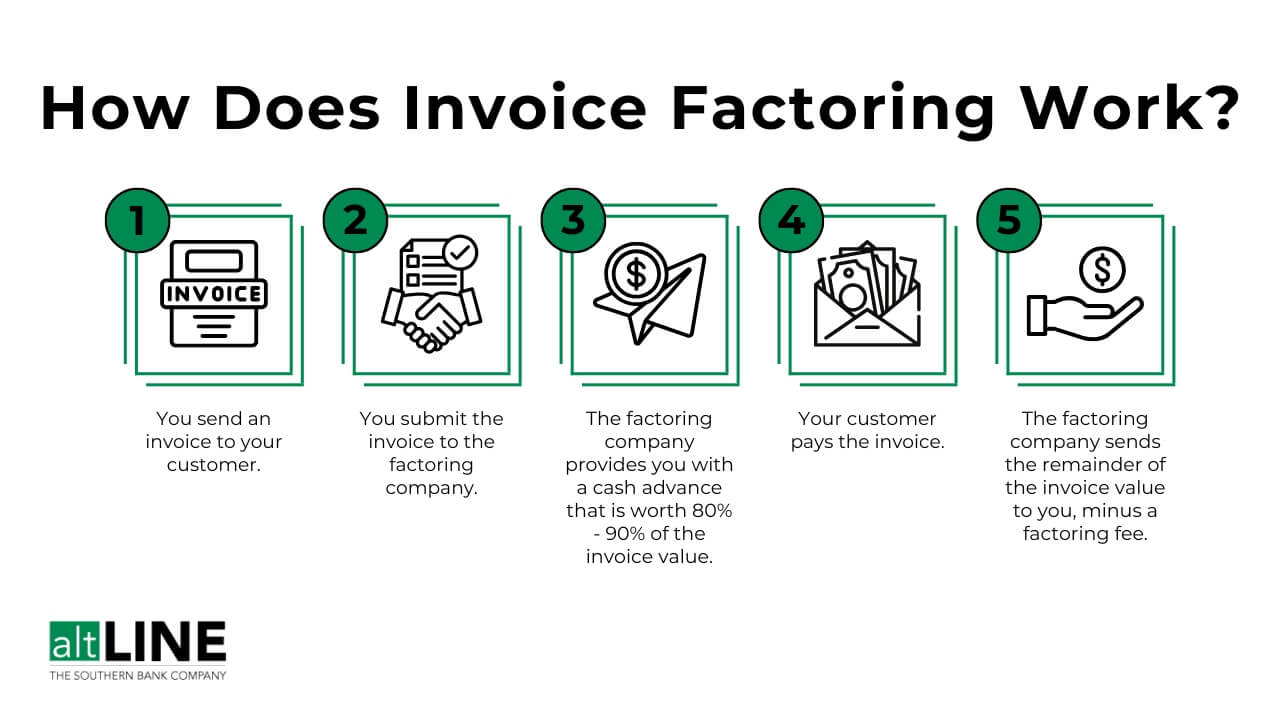Factoring is good for a business because it provides immediate cash to fix cash flow issues and cover expenses, allowing the business to take on new clients. Factoring improves a company’s liquidity by providing immediate funding instead of waiting for customers to pay.
Factoring can be a valuable financial solution for businesses facing cash flow challenges. It provides immediate cash and helps manage expenses, allowing the business to thrive and grow. By partnering with a factoring company, businesses can access funding quickly, without the need for traditional loans or lengthy approval processes.
This liquidity boost can be especially beneficial for companies dealing with slow-paying clients or experiencing rapid growth. However, like any financial decision, there are risks involved in factoring, such as potential recourse if a client fails to pay. We will explore the pros and cons of factoring and determine if it is a good option for businesses seeking enhanced cash flow and financial stability.

Credit: www.nav.com
Benefits Of Factoring
Factoring can be beneficial for businesses as it provides immediate cash, improving liquidity and solving cash flow issues caused by slow-paying clients. This funding allows for the payment of expenses and supports business growth, making it an attractive option for businesses facing financial challenges.
Improved Cash Flow
Factoring is an effective solution for improving a business’s cash flow. Rather than waiting for customers to pay their invoices, factoring allows businesses to access immediate funds from a factoring company. This steady cash flow ensures that businesses have the financial resources to cover their expenses, pay employees, and take on new clients.Immediate Access To Working Capital
Access to working capital is crucial for businesses to meet their day-to-day operational needs. With factoring, businesses can quickly obtain the working capital they need to bridge the gap caused by slow-paying customers. This access to immediate funds helps businesses maintain stability and continue operations without experiencing cash flow constraints.Ability To Keep Loyal Customers On Longer Payment Terms
Factoring also provides businesses with the ability to offer longer payment terms to their loyal customers. This strategic advantage allows businesses to maintain strong relationships with their customers while still receiving timely payments from the factoring company. By keeping loyal customers on longer payment terms, businesses can enhance customer satisfaction and loyalty, leading to repeat business and future growth opportunities. To summarize, factoring offers several benefits for businesses, including improved cash flow, immediate access to working capital, and the ability to keep loyal customers on longer payment terms. These advantages can help businesses maintain financial stability, meet their operational needs, and strengthen customer relationships.
Credit: www.zoho.com
Reasons For Using Factoring
Factoring is a financing option that has become increasingly popular among businesses looking to improve their cash flow and address persistent cash flow problems. There are several reasons why businesses choose to utilize factoring:
Improve Cash Flow From Slow Paying Clients
Invoices that are not paid promptly can create significant cash flow issues for businesses, especially for those with slow-paying clients. By partnering with a factoring company, businesses can access immediate cash for their outstanding invoices, improving their cash flow and providing the necessary resources to cover expenses and take on new clients.
Persistent Cash Flow Problems Due To Slow Payments
Slow payments can lead to persistent cash flow problems for businesses, making it challenging to meet financial obligations and plan for growth. Factoring offers a solution by providing businesses with an injection of immediate cash, preventing cash flow bottlenecks and ensuring ongoing operations.
Cash Flow Issues Caused By Fast Company Growth
While fast company growth is exciting, it can also result in unexpected cash flow issues. Rapidly expanding businesses often find themselves in need of additional funding to support increased production, hire more staff, or invest in new equipment or technology. Factoring addresses these cash flow challenges by providing businesses with the necessary funds to fuel their growth without relying solely on traditional loans or credit lines.
Risks And Considerations Of Factoring
Factoring can be a beneficial financing option for businesses looking to improve their cash flow. However, it’s important to evaluate the risks and considerations before deciding whether factoring is the right choice for your business.
Recourse Vs. Non-recourse Factoring
One of the key considerations when it comes to factoring is whether you opt for recourse or non-recourse factoring. Understanding the difference between the two is crucial in managing the financial risks associated with factoring.
Financial Risk In Recourse Factoring
In recourse factoring, if your client fails to pay the invoice, the factoring company can come after your business for the amount. This introduces additional financial risk for your business, as you may be responsible for repaying the factoring company.
Risk Absorption By Factoring Company In Non-recourse Factoring
In contrast, non-recourse factoring offers a level of risk protection for your business. The factoring company absorbs the risk of non-payment, reducing the financial burden on your business. This can provide peace of mind and certainty when it comes to managing your cash flow.
It’s important to carefully consider the risks and benefits associated with factoring before making a decision. Evaluating factors such as the financial stability of your clients, the cost of factoring, and the impact on your business operations is essential in determining whether factoring is a suitable financing option for your business.

Credit: altline.sobanco.com
Comparison To Alternative Financing Options
When it comes to choosing the right financing option for your business, it’s important to consider the benefits and drawbacks of each. Let’s compare invoice factoring to traditional loans and weigh the pros and cons of invoice factoring to understand if it’s a good fit for your business.
Invoice Factoring Vs. Traditional Loans
Invoice factoring and traditional loans are two common financing options for businesses. While traditional loans involve borrowing money and paying it back with interest, invoice factoring relies on selling accounts receivable to a third-party company at a discount in exchange for immediate cash.
Pros And Cons Of Invoice Factoring
Invoice factoring offers benefits such as quick access to cash, improved cash flow, and the ability to offload collection tasks. On the downside, it comes with costs in the form of discount fees and potential strain on customer relationships.
Frequently Asked Questions For Is Factoring Good For A Business
Is It Good To Have A Factoring Company?
Factoring companies are beneficial because they provide immediate cash to fix cash flow issues and pay expenses. This funding allows businesses to take on new clients and improve liquidity. Factoring also helps improve cash flow by providing immediate funding rather than waiting for customers to pay.
Additionally, factoring can help businesses with slow-paying clients and improve their overall financial situation.
How Does Factoring Help A Business?
Factoring helps a business by providing immediate cash, improving liquidity, and boosting cash flow. It allows businesses to access funds tied up in accounts receivable and use them to pay expenses or take on new clients. Factoring also helps improve cash flow from slow-paying clients and can be a solution for businesses facing cash flow problems.
Why Would A Company Use Factoring?
A company would use factoring to improve cash flow from slow-paying clients, allowing them to have immediate funding and resources to pay expenses and take on new clients. Factoring also improves a company’s liquidity by providing immediate access to funds tied up in accounts receivable.
Additionally, factoring can help a business cover funding gaps caused by slow-paying customers.
What Are The Risks Of Factoring A Business?
Factoring a business can have risks. In recourse factoring, the factoring company can come after your business if clients don’t pay. Non-recourse factoring can absorb the risk, but it may have higher fees. Make sure to assess the financial risk before choosing a factoring company.
Conclusion
To summarize, factoring can be highly beneficial for businesses. The immediate cash provided through factoring can greatly improve cash flow and help cover expenses. It also provides resources to take on new clients and fuel business growth. Factoring is a valuable solution for businesses dealing with slow-paying clients and seeking to improve liquidity.
With its ability to bridge funding gaps, factoring is a viable option for businesses looking to navigate financial challenges and optimize their operations.